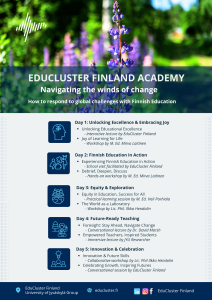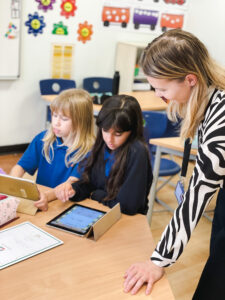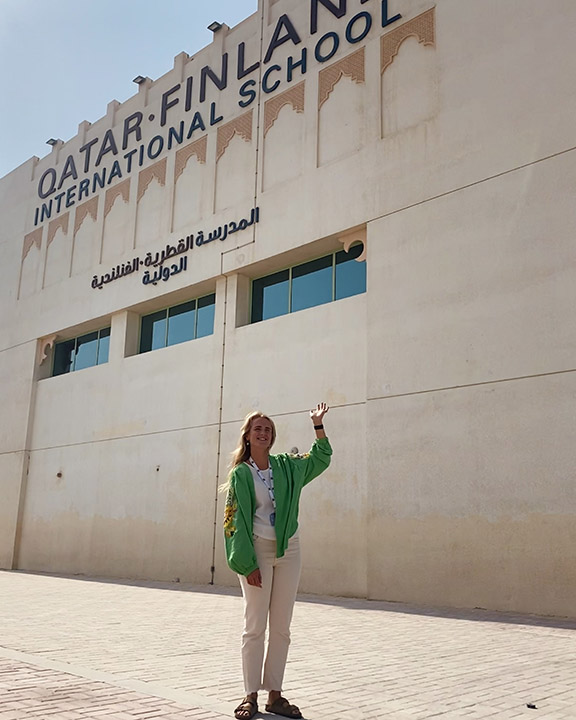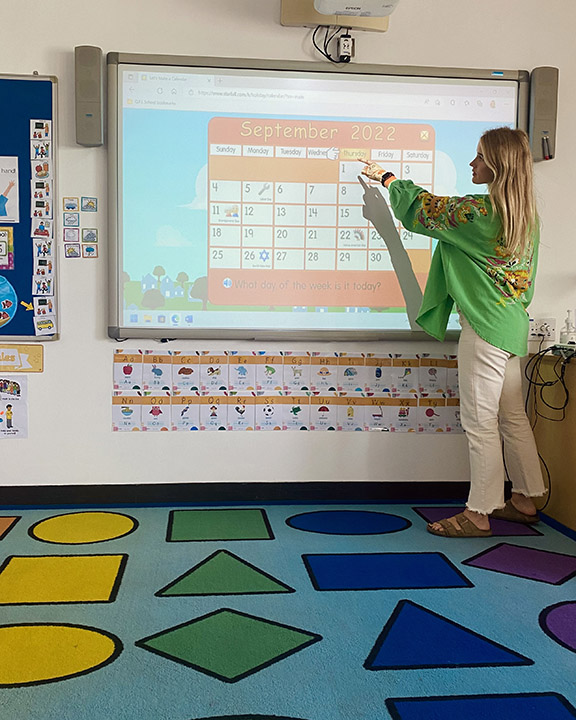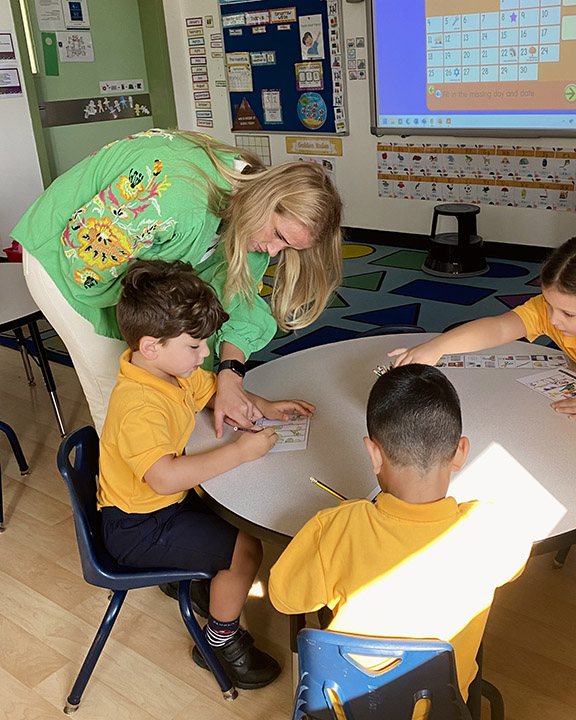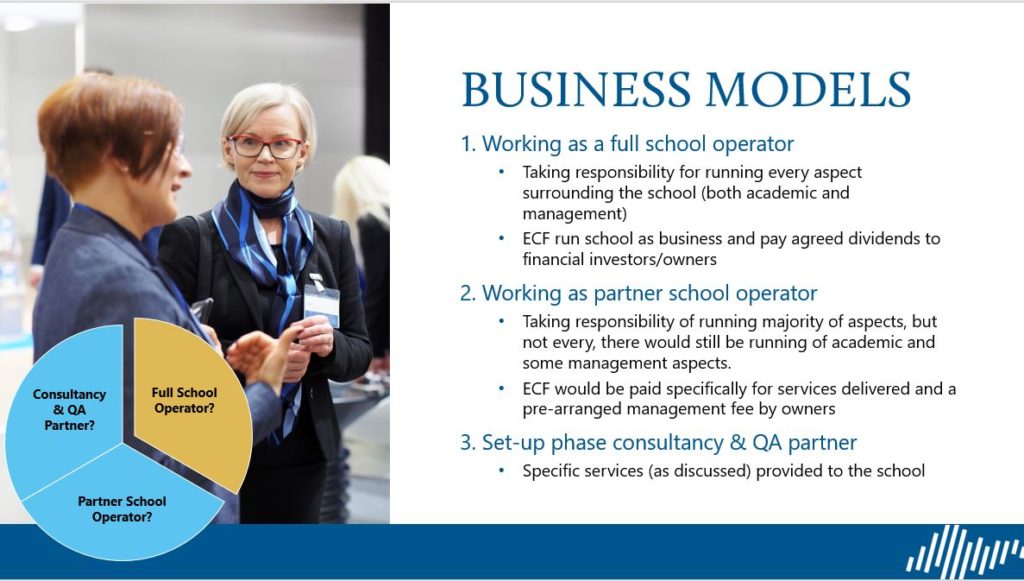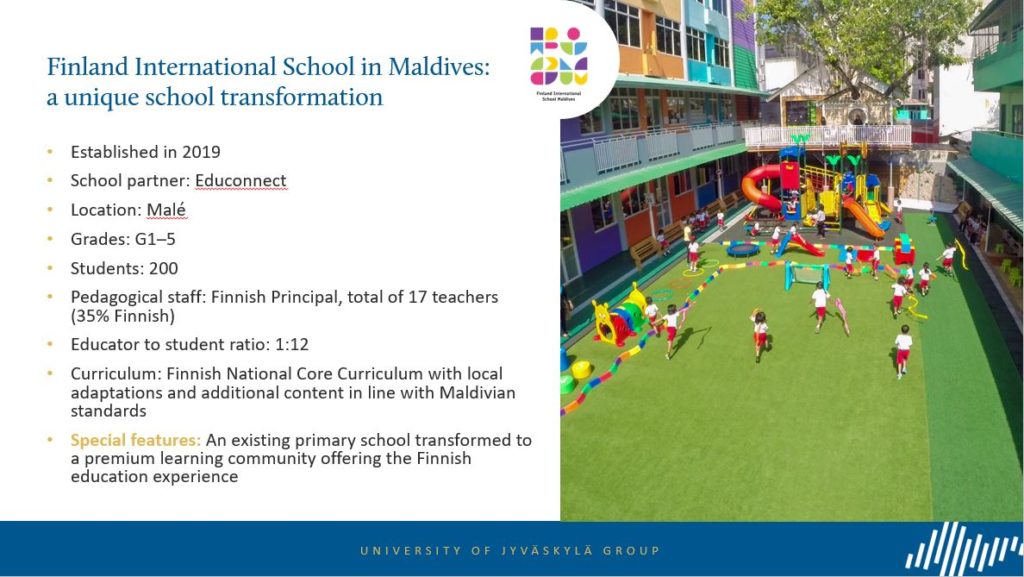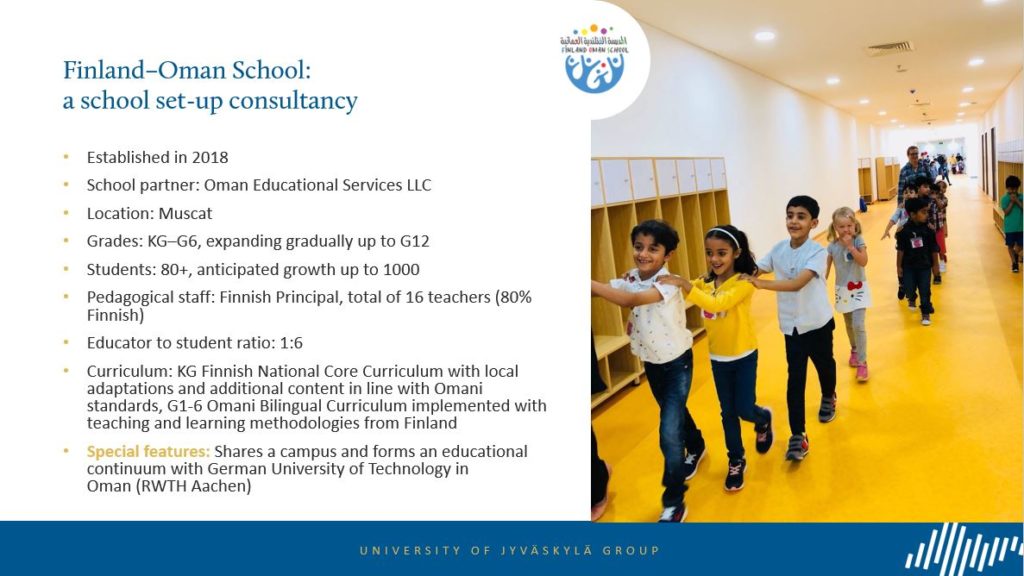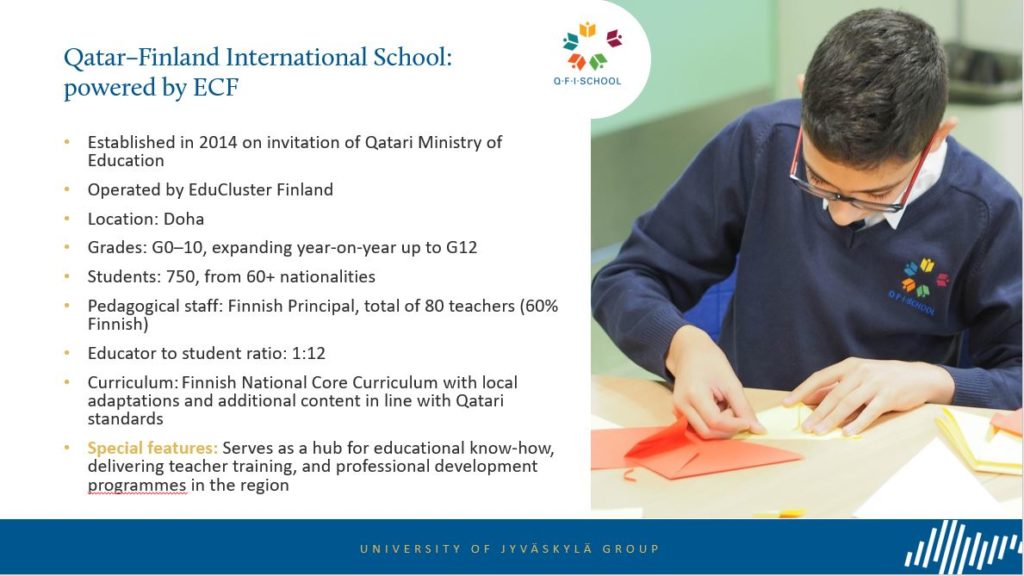Who are we?
Annulotta Marjanen, a special education teacher, with a background as a class teacher.
Joonas Marjanen, a music teacher, with a background as a class teacher.
What motivated us to apply abroad?
For both of us, this is not the first experience living abroad. Annulotta has lived six years in Thailand back in the 1990’s and Joonas has lived in Sweden for the first four years of his life and later a year in Mexico as a high school exchange student.
We were somewhat familiar with the Arabic culture before applying to work for EduCluster Finland. Annulotta’s brother used to work in the United Arab Emirates and working in the region seemed to be an interesting challenge to take on. We both have an international mindset – getting to know different cultures and understanding them have always fascinated us. Qatar-Finland International School and Finnish education export was something we wanted to know more about.
It was time to test and develop ourselves in terms of professional growth. Both of us had a few years of teaching experience but we were still under 30. Working and living in an international environment was a step we both desired to take.
What is/was a teacher’s workday like at your school?
We wake up around 6:00 am in the morning and leave to work before 7:00 am. Everyone needs to be at workplace from 7:30 am until 3:00 pm. During the working hours we have usually 4-6 lessons and possible break supervisions. Break supervision is also an active duty especially when supervising the younger students. As educators we need to stay alert, be involved, and guide students with their self-regulation skills. Rest of the time is allocated for planning with the units we work with, own planning and assessment, contacting and meeting the parents as well as participating in professional development programmes.
Some days it may take longer to get the work done. There are people who prefer to leave punctually and complete unfinished tasks in the evening. Sometimes, we stay at work a little longer if needed to get the important work-related tasks done. During the 15-minute commute back home we usually de-brief how our workday has been.
Work is in many ways more intense here than in Finland. Here we are not only working as teaching professionals but also representing Finland and promoting the Finnish education system.
Day of a SEN (Special Education Needs) teacher
My usual workday begins by checking the Teams application already on my way to work. There might be important information and messages I need to be aware of.
When we arrive to school, I collect and prepare the teaching materials according to my SEN schedule. First, I will go to Unit 3 and support 3rd graders in their English lesson. When arriving to any Unit, I have a habit of greeting the students and asking how their morning or day has been so far. I take the time to listen to them if they have something on their mind or need an adult support. After the first lesson I gather a group of 3rd graders and we go outside for a half an hour break time. In
November, the weather is getting very pleasant and the break time gives the students a great opportunity to move, run, play, and relax.
My day continues in Unit 2, working with 2nd graders and supporting them in their Math lesson. My work includes supporting students both individually and in groups, co-teaching together with the class teachers, screening and following up on students’ skills in various ways. Days can be very different and during the week I am participating in admission processes, multi-professional student welfare meetings, support team meetings, parent meetings, Unit meetings and planning time with the other teachers.
Collaboration with different teams and Units is the very essence of what I do. Listening to my colleagues and providing help with the students’ support needs builds the foundation and guides the planning of my work.
Usual day of a Music Teacher
When arriving at school, I sit down for a cup of coffee in the staff lounge. While catching up with colleagues nearby, I check Teams on my laptop. Usually, there are a few notifications that require my attention from the admin or colleagues. I teach mostly the upper grades where students are generally more self-oriented.
I go to the music room to set everything ready for the first lesson starting at 8:00 am. I have two 45-minute lessons back-to-back for two groups of Grade 7. Our curriculum is very close to the Finnish one with some local adaptations, so we usually sing and play together while learning bigger entities about musical elements, music history, or for instance different musical genres. Even though music may not play as big role in everyday life and in the community as it does in Finland, all students across the grade levels are very engaged and eager to participate and learn.
I have a 25-minute break before the grade 8-9 elective music lesson to set up the classroom and to make sure I have my presentation slides in order. During a skip lesson around 11 am I have my lunch in the canteen. Canteen offers good quality food for both students and staff for a reasonable price. After lunch I have my half-an-hour break supervision at the football field where I ensure that the students play fair, take turns, and respect others.
Last lessons of the day are high school World Music module MU3 for ten motivated students. At 2:00 my teaching for the day is done. I have time to do some planning for the next day, prepare learning material, and tidy up the classroom.
What competencies are the most valued in an international environment? (global competencies & knowledge)
Social and communication skills are most definitely in the very core of everything we do. Teamwork is a large part of our everyday school life, and collaboration skills are very much needed.
As educators in an international setting, it is important to have pedagogical creativity and ability to apply differentiation in you work – in planning, teaching, and assessing. Teachers need to have a strong professional self-confidence and classroom management skills.
We need to be flexible when facing any kind of changes. Ability to learn new competencies and putting those skills into practice is highly important. Organizational skills and the ability to manage
large entities are valuable strengths to have. Professional development and positive challenges keep you awake and ready for what is coming.
What are the highlights of your job?
Cultural diversity is one of the best parts of working at Qatar-Finland International School. There are over 60 different nationalities in our school community. It is very eye-opening as well as fascinating to get to know people from so many different backgrounds.
Students are motivated to learn new things: seeing their growth and working together towards the goals is highly rewarding. Constructive collaboration with parents and working in a community of educational professional and experts is motivating.
Challenging yourself professionally is encouraged and supported. Different kinds of responsibilities and positions (i.e., being a team leader, curriculum development work) have given us valuable experience for the future.
As a Finnish teacher you may not see you are special. Having grown in Finland, gone to school in Finland, studied to be a teacher in Finland, it is obvious that the only education system you know. When you get good feedback from international colleagues or visit other schools with different education system, you will notice that our child-centred, learning-by-doing approach is actually quite unique.
What kind of new challenges have you faced working abroad? (challenges)
We are here not only to offer good education and top-quality lessons, but to educate our students to be polite, tolerant, empathetic human beings and influence the way this generation thinks. The society in Qatar is very heterogeneous as most of the population are expats. The culture is different in many ways and obviously you need to respect the local customs and traditions.
Teachers create most of the learning material by themselves. Together with all the aforementioned tasks and of course teaching, our workdays are quite packed. Over the years we have become more and more efficient in planning our own work.
All in all, we have been able to challenge ourselves professionally as much as we have wanted to.
Who would you recommend your job to? How would you advice your future colleagues? (suitability /do’s & don’ts / tips)
Life itself is very pleasant in Qatar. It is sunny around the year, the school community is amazing, and there are many things to do on your free time. English is more widely spoken than Arabic which may come as surprise.
Teaching abroad is a great, eye-opening opportunity to refresh your idea of Finnish pedagogy. You need to have the intrinsic motivation to develop yourself and do your part for the good of the whole work community. Step out of your comfort zone until it becomes your comfort zone.

